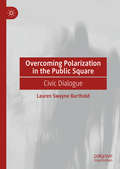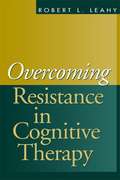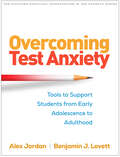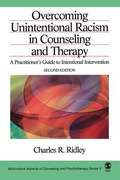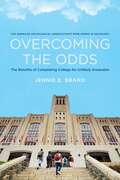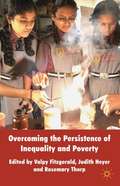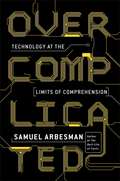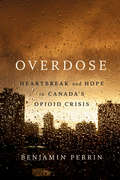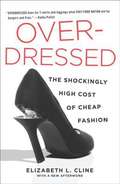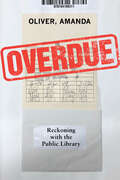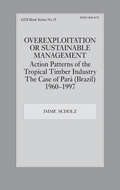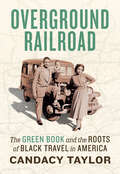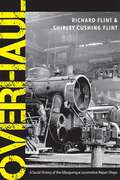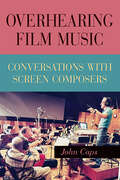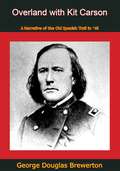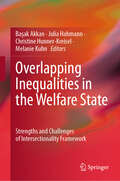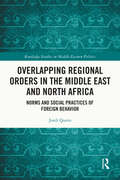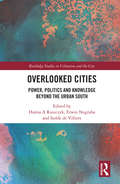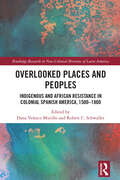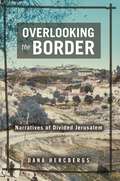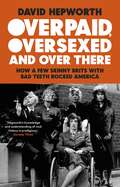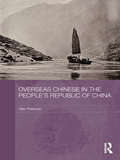- Table View
- List View
Overcoming Polarization in the Public Square: Civic Dialogue
by Lauren Swayne BartholdThis book describes how civic dialogue can serve as an antidote to a polarized public square. It argues that when pervasive polarization renders rational and fact-based argumentation ineffective, we first need to engage in a way that builds trust. Civic dialogue is a form of structured discourse that utilizes first-person narratives in order to promote trust, openness, and mutual understanding. By creating a dialogic structure that encourages listening and reflection, particularities and differences about fraught identities can be expressed in such a way that leads to the possibility of connecting through our fundamental, shared, and deeply felt humanity. Drawing on Plato, Buber, Gadamer, Dewey, cognitive bias research, as well as the work of dialogue practitioners, Lauren Swayne Barthold provides a sustained defense of civic dialogue as an effective strategy for avoiding futile political arguments and for creating pluralistic democratic communities.
Overcoming Resistance in Cognitive Therapy
by Robert L. LeahyDespite the efforts of therapists and patients, many patients in cognitive-behavioral therapy or any therapy do not improve. This unique book is designed to help the clinician better understand and work with patients who seem unable or unwilling to make needed changes. Integrating ideas from a range of psychotherapeutic approaches, the book presents a multidimensional model of resistance. It enumerates the specific impediments to change that may arise in the cognitive therapy context and brings each one to life with realistic clinical illustrations. Clinicians learn practical strategies and interventions to deal with a number of types of resistance, from reluctance to comply with basic cognitive procedures to risk-aversion and self-handicapping. Also addressed are countertransference issues, including workable ways that clinicians can modify their own responses to patients to overcome impasses in treatment.
Overcoming Test Anxiety: Tools to Support Students from Early Adolescence to Adulthood (The Guilford Practical Intervention in the Schools Series)
by Benjamin J. Lovett Alex JordanThis state-of-the-art resource offers school and clinical professionals a comprehensive approach to addressing test anxiety in students from sixth grade through college and beyond (ages 11 to adulthood). The book uniquely combines acceptance-based behavior therapy interventions with practical strategies for improving study skills and enhancing test performance. By learning to disengage from unhealthy worries, students can decrease avoidance and unlock their academic potential. In a convenient large-size format, the book features sample dialogues and scripts, concrete test-taking guidance, and 27 reproducible handouts that can be downloaded and printed. This book is in The Guilford Practical Intervention in the Schools Series, edited by Sandra M. Chafouleas.
Overcoming Unintentional Racism in Counseling and Therapy: A Practitioner's Guide to Intentional Intervention
by Charles R. RidleyDiscusses how individuals can learn how to confront their racist attitudes and become allies.
Overcoming the Odds: The Benefits of Completing College for Unlikely Graduates (American Sociological Association's Rose Series)
by Jennie E. BrandEach year, millions of high school students consider whether to continue their schooling and attend and complete college. Despite evidence showing that a college degree yields far-reaching benefits, critics of higher education increasingly argue that college “does not pay off” and some students - namely, disadvantaged prospective college goers - would be better served by forgoing higher education. But debates about the value of college often fail to carefully consider what is required to speak knowledgeably about the benefits –what a person’s life might look like had they not completed college, or their college counterfactual. In Overcoming the Odds sociologist Jennie E. Brand reveals the benefits of completing college by comparing life outcomes of college graduates with their college counterfactuals. Drawing on two cohorts of nationally representative data from the Bureau of Labor Statistics National Longitudinal Surveys program, Brand uses matching and machine learning methods to estimate the effects of college completion across students with varying likelihoods of completing four-year degrees. To illustrate her findings, Brand describes outcomes using matched vignettes of college and non-college graduates. Brand shows that four-year college completion enables graduates to increase wages and household income, while also circumventing unemployment, low-wage work, job instability, poverty, and social assistance. Completing college also increases civic engagement. Most of these benefits are larger for disadvantaged than for more advantaged students, rendering arguments that college has limited benefits for unlikely graduates as flawed. Brand concludes that greater long-term earnings, and less job instability and unemployment, and thus more tax revenue, less reliance on public assistance, and high levels of volunteering indicate that public investment in higher education for students from disadvantaged backgrounds yields far-reaching collective benefits. She asserts that it is better for our society when more people complete college. Overcoming the Odds is an innovative and enlightening exploration of how college can transform lives.
Overcoming the Persistence of Inequality and Poverty
by Rosemary Thorp Valpy Fitzgerald Judith HeyerInternational experts evaluate new policy directions in economic development and poverty reduction, building on the ideas of a pioneer in the new discipline of Development Studies, Frances Stewart. Combing ideas and evidence on technological change, human development and conflict prevention to address the issue of the persistence of inequality
Overcomplicated: Technology at the Limits of Comprehension
by Samuel ArbesmanWhy did the New York Stock Exchange suspend trading without warning on July 8, 2015? Why did certain Toyota vehicles accelerate uncontrollably against the will of their drivers? Why does the programming inside our airplanes occasionally surprise its creators? After a thorough analysis by the top experts, the answers still elude us. You don't understand the software running your car or your iPhone. But here's a secret: neither do the geniuses at Apple or the Ph.D.'s at Toyota--not perfectly, anyway. No one, not lawyers, doctors, accountants, or policy makers, fully grasps the rules governing your tax return, your retirement account, or your hospital's medical machinery. The same technological advances that have simplified our lives have made the systems governing our lives incomprehensible, unpredictable, and overcomplicated. In Overcomplicated, complexity scientist Samuel Arbesman offers a fresh, insightful field guide to living with complex technologies that defy human comprehension. As technology grows more complex, Arbesman argues, its behavior mimics the vagaries of the natural world more than it conforms to a mathematical model. If we are to survive and thrive in this new age, we must abandon our need for governing principles and rules and accept the chaos. By embracing and observing the freak accidents and flukes that disrupt our lives, we can gain valuable clues about how our algorithms really work. What's more, we will become better thinkers, scientists, and innovators as a result. Lucid and energizing, this book is a vital new analysis of the world heralded as "modern" for anyone who wants to live wisely.
Overcomplicated: Technology at the Limits of Comprehension
by Samuel ArbesmanWhy did the New York Stock Exchange suspend trading without warning on July 8, 2015? Why did certain Toyota vehicles accelerate uncontrollably against the will of their drivers? Why does the programming inside our airplanes occasionally surprise its creators? After a thorough analysis by the top experts, the answers still elude us. You don’t understand the software running your car or your iPhone. But here’s a secret: neither do the geniuses at Apple or the Ph.D.’s at Toyota—not perfectly, anyway. No one, not lawyers, doctors, accountants, or policy makers, fully grasps the rules governing your tax return, your retirement account, or your hospital’s medical machinery. The same technological advances that have simplified our lives have made the systems governing our lives incomprehensible, unpredictable, and overcomplicated. In Overcomplicated, complexity scientist Samuel Arbesman offers a fresh, insightful field guide to living with complex technologies that defy human comprehension. As technology grows more complex, Arbesman argues, its behavior mimics the vagaries of the natural world more than it conforms to a mathematical model. If we are to survive and thrive in this new age, we must abandon our need for governing principles and rules and accept the chaos. By embracing and observing the freak accidents and flukes that disrupt our lives, we can gain valuable clues about how our algorithms really work. What’s more, we will become better thinkers, scientists, and innovators as a result. Lucid and energizing, this book is a vital new analysis of the world heralded as "modern" for anyone who wants to live wisely.
Overcomplicated: Technology at the Limits of Comprehension
by Samuel ArbesmanWhy did the New York Stock Exchange suspend trading without warning on July 8, 2015? Why did certain Toyota vehicles accelerate uncontrollably against the will of their drivers? Why does the programming inside our airplanes occasionally surprise its creators? After a thorough analysis by the top experts, the answers still elude us. You don't understand the software running your car or your iPhone. But here's a secret: neither do the geniuses at Apple or the Ph.D.'s at Toyota--not perfectly, anyway. No one, not lawyers, doctors, accountants, or policy makers, fully grasps the rules governing your tax return, your retirement account, or your hospital's medical machinery. The same technological advances that have simplified our lives have made the systems governing our lives incomprehensible, unpredictable, and overcomplicated. In Overcomplicated, complexity scientist Samuel Arbesman offers a fresh, insightful field guide to living with complex technologies that defy human comprehension. As technology grows more complex, Arbesman argues, its behavior mimics the vagaries of the natural world more than it conforms to a mathematical model. If we are to survive and thrive in this new age, we must abandon our need for governing principles and rules and accept the chaos. By embracing and observing the freak accidents and flukes that disrupt our lives, we can gain valuable clues about how our algorithms really work. What's more, we will become better thinkers, scientists, and innovators as a result. Lucid and energizing, this book is a vital new analysis of the world heralded as "modern" for anyone who wants to live wisely. From the Hardcover edition.
Overdose: Heartbreak and Hope in Canada's Opioid Crisis
by Benjamin Perrin&“Overdose is a necessary and searching investigation into a devastating epidemic that should never have happened. Benjamin Perrin painstakingly shows that it need not continue if we, as a society, heed the evidence.&”—Gabor Maté M.D., author of In The Realm of Hungry Ghosts: Close Encounters With AddictionAn astonishing and powerful look at the ongoing opioid crisis North America is in the middle of a health emergency. Life expectancies are declining. Someone is dying every two hours in Canada from illicit drug overdose. Fentanyl has become a looming presence—an opioid more powerful, pervasive, and deadly than any previous street drug. The victims are many—and often not whom we might expect. They include the poor and forgotten but also our neighbours: professionals, students, and parents. Despite the thousands of deaths, these victims have remained largely invisible. But not anymore. Benjamin Perrin, a law and policy expert, shines a light in this darkest of corners—and his findings challenge many assumptions about the crisis. Why do people use drugs despite the risk of overdosing? Can we crack down on the fentanyl supply? Do supervised consumption sites and providing &“safe drugs&” enable the problem? Which treatments work? Would decriminalizing all drugs help or do further harm? In this urgent and humane look at a devastating epidemic, Perrin draws on behind-the-scenes interviews with those on the frontlines, including undercover police officers, intelligence analysts, border agents, prosecutors, healthcare professionals, Indigenous organizations, activists, and people who use drugs. Not only does he unveil the many complexities of this situation, but he also offers a new way forward—one that may save thousands of lives.
Overdressed
by Elizabeth L. Cline"Overdressed does for T-shirts and leggings what Fast Food Nation did for burgers and fries. ” -Katha Pollitt Cheap fashion has fundamentally changed the way most Americans dress. Stores ranging from discounters like Target to traditional chains like JCPenny now offer the newest trends at unprecedentedly low prices. And we have little reason to keep wearing and repairing the clothes we already own when styles change so fast and it’s cheaper to just buy more. Cline sets out to uncover the true nature of the cheap fashion juggernaut. What are we doing with all these cheap clothes? And more important, what are they doing to us, our society, our environment, and our economic well-being? .
Overdressed: The Shockingly High Cost of Cheap Fashion
by Elizabeth L. ClineUntil recently, Elizabeth Cline was a typical American consumer. She'd grown accustomed to shopping at outlet malls, discount stores like T.J. Maxx, and cheap but trendy retailers like Forever 21, Target, and H&M. She was buying a new item of clothing almost every week (the national average is sixty-four per year) but all she had to show for it was a closet and countless storage bins packed full of low-quality fads she barely wore--including the same sailor-stripe tops and fleece hoodies as a million other shoppers. When she found herself lugging home seven pairs of identical canvas flats from Kmart (a steal at $7 per pair, marked down from $15!), she realized that something was deeply wrong. Cheap fashion has fundamentally changed the way most Americans dress. Stores ranging from discounters like Target to traditional chains like JCPenney now offer the newest trends at unprecedentedly low prices. Retailers are producing clothes at enormous volumes in order to drive prices down and profits up, and they've turned clothing into a disposable good. After all, we have little reason to keep wearing and repairing the clothes we already own when styles change so fast and it's cheaper to just buy more. But what are we doing with all these cheap clothes? And more important, what are they doing to us, our society, our environment, and our economic well-being? In Overdressed, Cline sets out to uncover the true nature of the cheap fashion juggernaut, tracing the rise of budget clothing chains, the death of middle-market and independent retailers, and the roots of our obsession with deals and steals. She travels to cheap-chic factories in China, follows the fashion industry as it chases even lower costs into Bangladesh, and looks at the impact (both here and abroad) of America's drastic increase in imports. She even explores how cheap fashion harms the charity thrift shops and textile recyclers where our masses of clothing castoffs end up.Sewing, once a life skill for American women and a pathway from poverty to the middle class for workers, is now a dead-end sweatshop job. The pressures of cheap have forced retailers to drastically reduce detail and craftsmanship, making the clothes we wear more and more uniform, basic, and low quality. Creative independent designers struggle to produce good and sustainable clothes at affordable prices.Cline shows how consumers can break the buy-and-toss cycle by supporting innovative and stylish sustainable designers and retailers, refashioning clothes throughout their lifetimes, and mending and even making clothes themselves.Overdressed will inspire you to vote with your dollars and find a path back to being well dressed and feeling good about what you wear.
Overdue: Reckoning with the Public Library
by Amanda OliverWhen Amanda Oliver began work as a school librarian, fueled by a lifelong love of books and a desire to help, she felt qualified for the job. What she learned was that librarians are expected to serve as mediators and mental-health-crisis support professionals, customer service reps and administrators of overdose treatment, fierce loyalists to institutionalized mythology and enforced silence, and arms of state surveillance. <p><p> Based on firsthand experiences from six years of professional work as a librarian in high-poverty neighborhoods of Washington, DC, as well as interviews and research, Overdue begins with Oliver's first day at Northwest One, the DC Public Library branch where she would ultimately end her library career. <p><p> Through her experience at this branch, Oliver highlights the national problems that have existed in libraries since they were founded, troublingly at odds with the common romanticization of the library as a shining beacon of equality: racism, segregation, and economic oppression. These fundamental American problems manifest today as police violence, the opioid epidemic, widespread inaccessibility of affordable housing, and a lack of mental health care nationwide—all of which come to a head in public library spaces. Can public librarians continue to play the many roles they are tasked with? Can American society sustain one of its most noble institutions? <p><p> Libraries will not save us, but Oliver helps us imagine what might be possible if we stop expecting them to.
Overexploitation or Sustainable Management? Action Patterns of the Tropical Timber Industry: The Case of Para (Brazil) 1960-1997
by Imme ScholzThe part played by the Brazilian tropical timber industry in deforesting the Amazon region has not been studied very much. This book describes the expansion of the timber industry in the Brazilian federal state of Para since the 1960s, when Amazon development became an important item on the government's agenda.
Overground Railroad: The Green Book and the Roots of Black Travel in America
by Candacy A. TaylorThis historical exploration of the Green Book offers “a fascinating [and] sweeping story of black travel within Jim Crow America across four decades” (The New York Times Book Review).Published from 1936 to 1966, the Green Book was hailed as the “black travel guide to America.” At that time, it was very dangerous and difficult for African-Americans to travel because they couldn’t eat, sleep, or buy gas at most white-owned businesses. The Green Book listed hotels, restaurants, gas stations, and other businesses that were safe for black travelers. It was a resourceful and innovative solution to a horrific problem. It took courage to be listed in the Green Book, and Overground Railroad celebrates the stories of those who put their names in the book and stood up against segregation. Author Candacy A. Taylor shows the history of the Green Book, how we arrived at our present historical moment, and how far we still have to go when it comes to race relations in America. A New York Times Notable Book of 2020
Overhaul: A Social History of the Albuquerque Locomotive Repair Shops
by Richard Flint Shirley Cushing FlintIn Overhaul, historians Richard Flint and Shirley Cushing Flint present the largely forgotten story of Albuquerque&’s locomotive repair shops, which were the driving force behind the city&’s economy for more than seventy years. In the course of their study they also document the thousands of skilled workers who kept the locomotives in operation, many of whom were part of the growing Hispano and Native American middle class. Their critical work kept the Atchison, Topeka, and Santa Fe&’s steam trains running and established and maintained Albuquerque&’s unique character in the region.Including a generous selection of historic photographs, Overhaul provides a glimpse into the people, places, culture, and special history found in Albuquerque&’s locomotive shops during the boom of steam railroading. The Flints provide an engaging and informative account of how these shops and workers played a crucial role in the formation and development of the Duke City.
Overhearing Film Music: Conversations with Screen Composers (SUNY series, Horizons of Cinema)
by John CapsBeginning with a quick history of film scoring and then taking the reader backstage to interview a dozen major screen composers, Overhearing Film Music represents three generations of movie soundtrack music. Ranging from groundbreaking composers who scored classic 1940s melodramas such as Laura and the Thief of Bagdad, to the jazz-influenced modernists who worked on Rebel Without a Cause and The Pink Panther, and into the symphonic renaissance represented by films like Star Wars and Harry Potter, Caps asks the seminal questions: How did this kind of active movie scoring evolve from silent films—and where is it headed? These interviews provide a master class in how and why to score a film. Interspersed among the interviews, Caps's single-subject essays provide concise histories of the use of choral music in films, African American and female film composers, and digital composing software for a new era.
Overland with Kit Carson: A Narrative of the Old Spanish Trail in ‘48
by George Douglas BrewertonGold had just been discovered in California at the close of the Mexican War when Kit Carson started east from Los Angeles with dispatches. Going with him was Lieutenant George Douglas Brewerton, who describes their journey over the Old Spanish Trail. It was a torturous route across deserts and mountains requiring the kind of expert survival skills that made Kit Carson famous. The scout, who was carrying the news that would begin the rush for gold, went as far as Taos, where he was reunited with his wife. From there Brewerton joined a wagon train that labored over the Santa Fé Trail to Independence, Missouri.Overland with Kit Carson is a colorful and authentic account of encounters with Indians and white adventurers and of the hazards and hardships that accompanied anyone who undertook such a long journey in a sparsely populated country.“Of prime importance to many general readers as well as to historians will be Brewerton’s intimate and concrete pictures of Kit Carson.”—Southwest Review.
Overlapping Inequalities in the Welfare State: Strengths and Challenges of Intersectionality Framework
by Christine Hunner-Kreisel Melanie Kuhn Julia Hahmann Başak AkkanThe volume stresses the relevance of the intersectionality framework in welfare state analysis by examining overlapping inequalities within the shifting institutional boundaries and organisational processes across diverse welfare settings. The volume explores the strengths and challenges of theoretical and methodological approaches to intersectionality, addressing its spatial, temporal and comparative dimensions. It, therefore, adopts a critical and process-focused approach while recognising the agency of individuals as subjects of state policies. The contributions critically build the link between intersectionality and other theoretical frameworks and research paradigms, including Marxist social reproduction theory, critical race studies, Bourdieuan analysis of class, critical geography, childhood, queer, migration, and disability studies. The contributions provide insights into the institutional realms of health, education, social services, and care work and examine state practices of racial profiling and policing in distinct welfare states. Overall, the contributions illustrate the strengths of the intersectionality framework in empirical inquiries while providing critical reflections on its limitations. Readers across a diverse array of social science disciplines will find this book valuable.
Overlapping Regional Orders in the Middle East and North Africa: Norms and Social Practices of Foreign Behaviour (Routledge Studies in Middle Eastern Politics)
by Jordi QueroFocused on a set of overlapping international orders of regional scope present in the Middle East and North Africa, this book argues that rules and primary institutions have sanctioned the foreign behavior of the sub-system’s international actors since 1945. The author avoids recent IR trends focused on narrow case studies, instead providing a comprehensive overview of the MENA’s regional politics. The normative content and evolution of multiple international orders are examined, constituting the intra-Arab order, the Arab-Israeli order and the Arab-Iranian order, as well as the expression of the global order in regional interactions. Drawing on Area Studies and English School and constructivist IR theories, the author argues that a plurality of overlapping regional orders have coexisted since 1945, not just one as is commonly suggested in the literature. Each of these orders is integrated by different participants and has developed its own differentiated norms and institutions setting parameters on legitimate behavior. This analytical proposal helps make sense of foreign relations otherwise labeled as incoherent. The book has wide appeal, accessible both to students wishing to learn about the politics, history and sociology of the Middle East, as well as to specialists seeking original research on the functioning of the MENA’s regional orders.
Overlooked Cities: Power, Politics and Knowledge Beyond the Urban South (Routledge Studies in Urbanism and the City)
by Hanna A. Ruszczyk Erwin Nugraha Isolde De VilliersOverlooked Cities reflects and impacts the changing landscape of urban studies and geography from the perspective of smaller and more regional cities in the urban South. It critically examines the ways in which cities are uniquely positioned within different urban and knowledge hierarchies. The book unpacks the dynamics of “overlooked-ness” in these cities, identifies emerging trends and processes that characterise such cities and provides alternative sites for comparative urban theory. It is organised into two themes: firstly, politics and power and secondly, production and negotiation of knowledge. The authors share a commitment to challenging the unevenness of urban knowledge production by approaching these cities on their own terms. Only then can we harness the insights emanating from these overlooked cities, and contribute to a deeper and richer understanding of the urban itself. This collection of essays, focusing on 13 cities in nine countries and across three continents (Luzhou, China; Bharatpur, Nepal; Bloemfontein/Mangaung and Pretoria/Tshwane, South Africa; Zarqa, Jordan; Santa Fe, Argentina; Manizales, Colombia; Arequipa and Trujillo, Peru; Dili, Timor-Leste; Bandar Lampung, Semarang and Bontang, Indonesia) makes a timely contribution to urban scholarship. The volume will be of interest to scholars from the disciplines of urban studies, geography, development and anthropology, as well as postgraduate students researching the global South and third year undergraduate students studying cities and urban studies, development and critical thinking.
Overlooked Places and Peoples: Indigenous and African Resistance in Colonial Spanish America, 1500-1800 (Routledge Research in New Colonial Histories of Latin America)
by Dana Velasco Murillo Robert C. SchwallerThis book examines the hemispheric histories of overlooked peoples and places that shaped colonial Spanish America. This volume focuses on the experiences of Native peoples, Africans and Afro-descended peoples, and castas (individuals of mixed ancestry) living in regions perceived as fringe, marginal, or peripheral. It covers a comprehensive geographic range including northern Mexico, Central America, the Circum-Caribbean, and South America, as well as a sweeping chronological period, from the earliest colonization episodes of the sixteenth century to the twilight of Spanish rule in the late eighteenth century. The chapters highlight the diverse peoples, from semisedentary and nonsedentary Native groups and Mosquito captains to free African governors—who lived, labored, fought, ruled, and formed communities across Spanish America. The volume examines how these overlooked peoples navigated colonial processes of conquest, displacement, and relocation, while drawing attention to local factors that influenced these experiences including ecological change, rivalries, diplomacy, contraband, time and distance, and geography. Through their analysis of the local and temporal contexts, the studies in this volume offer new insight into why the protagonists of these places responded contentiously—through resistance or flight—or cooperatively—by accepting treaties or alliances.Non-specialists-undergraduate students, booksellers, and librarians will be drawn to the individuals case studies, while scholars will find this collection to be an indispensable research tool.
Overlooking the Border: Narratives of Divided Jerusalem (Raphael Patai Series in Jewish Folklore and Anthropology)
by Dana HercbergsOverlooking the Border: Narratives of Divided Jerusalem by Dana Hercbergs continues the dialogue surrounding the social history of Jerusalem. The book’s starting point is the border that separated the city between Jordan and Israel in 1948–1967, a lesser-known but significant period for cultural representations of Jerusalem. Based on ethnographic fieldwork, the book juxtaposes Israeli and Palestinian personal narratives about the past with contemporary museum exhibits, street plaques, tourism, and real estate projects that are reshaping the city since the decline of the peace process and the second intifada. What emerges is a portrayal of Jerusalem both as a local place with unique rhythms and topography and as a setting for national imaginaries and agendas with their attendant political and social tensions. As sites of memory, Jerusalem’s homes, streets, and natural areas form the setting for emotionally charged narratives about belonging and rights to place. Recollections of local customs and lifeways in the mid-twentieth century coalesce around residents’ desire for stability amid periods of war, dispossession, and relocation—intertwining the mythical with the mundane. Hercbergs begins by taking the reader to the historically Arab neighborhoods of West Jerusalem, whose streets are a battleground for competing historical narratives about the Israeli-Arab War of 1948. She goes on to explore the connections and tensions between Mizrahi Jews and Palestinians living across the border from one another in Musrara, a neighborhood straddling West and East Jerusalem. The author rounds out the monograph with a semiotic analysis of contemporary tourism and architectural ventures that are entrenching ethno-national separation in the post-Oslo period. These rhetorical expressions illuminate what it means to be a Jerusalemite in the context of the city’s fraught history. Overlooking the Border examines the social and geographic significance of borders for residents’ sense of self, place, and community, and for representations of the city both locally and abroad. It is certain to be of value to scholars and advanced undergraduate and graduate students of Middle Eastern studies, history, urban ethnography, and Israeli and Jewish studies.
Overpaid, Oversexed and Over There: How a Few Skinny Brits with Bad Teeth Rocked America
by David HepworthThe Beatles landing in New York in February 1964 was the opening shot in a cultural revolution nobody predicted. Suddenly the youth of the richest, most powerful nation on earth was trying to emulate the music, manners and the modes of a rainy island that had recently fallen on hard times.The resulting fusion of American can-do and British fuck-you didn’t just lead to rock and roll’s most resonant music. It ushered in a golden era when a generation of kids born in ration card Britain, who had grown up with their nose pressed against the window of America’s plenty, were invited to wallow in their big neighbour’s largesse.It deals with a time when everything that was being done - from the Beatles playing Shea Stadium to the Rolling Stones at Altamont, from the Who performing their rock opera at the Metropolitan Opera House to David Bowie touching down in the USA for the first time with a couple of gowns in his luggage - was being done for the very first time.Rock and roll would never be quite so exciting again.
Overseas Chinese in the People's Republic of China (Chinese Worlds)
by Glen PetersonOverseas Chinese in the People’s Republic of China examines the experiences of a group of persons known officially and collectively in the PRC as "domestic Overseas Chinese". They include family members of overseas migrants who remained in China, refugees fleeing persecution, and former migrants and their descendants who "returned" to the People’s Republic in order to pursue higher education and to serve their motherland. In this book, Glen Peterson describes the nature of the official state project by which domestic Overseas Chinese were incorporated into the economic, political and social structures of the People’s Republic of China in the 1950s, examines the multiple and contradictory meanings associated with being "domestic Overseas Chinese", and explores how "domestic Overseas Chineseness" as political category shaped social experiences and identities. This book fills an important gap in the literature on Chinese migration and Chinese transnationalism and will be an invaluable resource to students and scholars of these subjects, as well as Chinese history and Asian Studies more generally.
